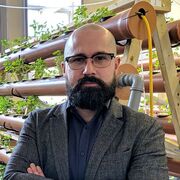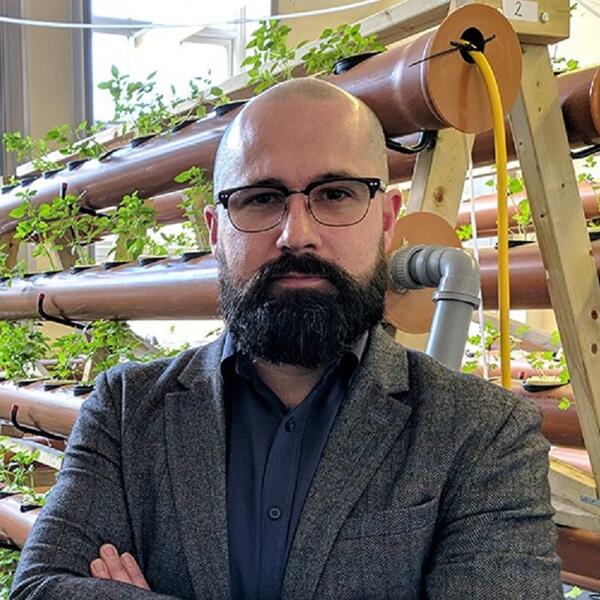Jacob Nickles (he/him)
School of Geography and Planning
Research Fellow


Full contact details
School of Geography and Planning
Geography and Planning Building
Winter Street
Sheffield
S3 7ND
- Profile
-
I have a very unconventional career track, managing and owning Food & Beverage businesses from a young age. I had a substantial shift change in 2016, when I moved into research. Using my business experience, I helped secure circa £500k for an international project building a greenhouse and exploring controlled environment technology in the Middle East. Moving on from there, I have primarily researched and built hydroponic and aquaponic systems in a variety of contexts from low cost hydroponic systems in an abandoned school classroom to intensive pathogen screening systems in the laboratory.
In recent times I have taken up an interest in science communication with the aim of increasing public awareness and acceptance of sustainable agricultural technologies like hydroponics. I also work extensively with commercial stakeholders of different shapes and sizes with the aim of bridging the gaps between academia and business. I have project managed an Innovate 'Future Farming Innovation Fund' R&D project with a Sheffield-based vertical farm and am currently co-supervising a Knowledge Transfer Partnership with a world-leading polyurethane foam manufacturer.
At the moment my main role is as research fellow in the '' project within the UKRI 'Transforming UK Food Systems' program developing and modelling low-input hydroponic systems, in semi-controlled environments.
I am also co-lead of the Institute for Sustainable Food Controlled Environment Agriculture cluster at the University of Sheffield.
- Research interests
-
- Controlled Environment Agriculture (CEA) – particularly the design, development, and application of hydroponic and aquaponic systems across diverse contexts (low-cost to intensive).
- Low-input sustainable systems – optimizing hydroponics in resource-constrained or semi-controlled environments, with a focus on sustainability.
- Technology transfer and applied innovation – translating research into practical applications through collaboration with industry partners.
- Science communication and public engagement – increasing awareness and acceptance of sustainable agri-tech innovations.
- Interdisciplinary research – integrating business, science, and engineering perspectives in food systems innovation.
- Agri-food systems transformation – contributing to systemic change through work like the UKRI Transforming UK Food Systems program.
- Publications
